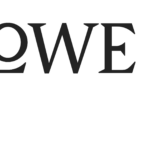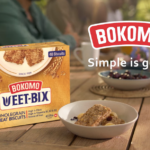
 Sarah Dexter, CEO at MullenLowe South Africa encourages brands to give some thought to which brand they partner with. It may prove the difference between a successful promo campaign and one that falls flat.
Sarah Dexter, CEO at MullenLowe South Africa encourages brands to give some thought to which brand they partner with. It may prove the difference between a successful promo campaign and one that falls flat.
There appears to be an increasing focus amongst brands these days on delivering short-term results – a desire to deliver the “right” bottom line for this month/quarter/cycle, despite numerous studies suggesting that this is detrimental to the long-term health of a brand.
 But let’s not get started on why brands need to take a longer view, as it’s akin to trying to put out a blazing building with a soggy lettuce! Everyone nods when you say it and then proceeds to discuss what promo they’re going to do next.
But let’s not get started on why brands need to take a longer view, as it’s akin to trying to put out a blazing building with a soggy lettuce! Everyone nods when you say it and then proceeds to discuss what promo they’re going to do next.
The case for using other brands
On that note, let’s rather look at the promotions brands undertake. Some leverage real insight into consumers and brand synergy, whilst others seem to offer prizes they’d like to win, or whatever they think is the “latest” thing, irrespective of the fact that it makes little sense or has little or no relation to the brand in question. NutriBullet anyone?
There’s no doubt that cash is king when it comes to alluring prizes, but where does that leave the brand on promotion? Perhaps it depends on how strong the brand is to start with and the objectives of the promotion.
If the shoe fits……
The current Kellogg’s “Win your Share of R100,000” may help convince consumers to buy that box over the Bokomo one in that moment, but does it not actually exacerbate commoditisation of the category? Is it not better, in the longer term, to at least try and link “cash” to something that may have a ‘halo effect’ on the promoting brand? For example, “Win your share of R100,000 in school fees”.
Many brands choose to have an explicit link between promoter brand and prize brand, and one that makes sense. For example, Shell (petrol) + BMW (car).
Hmm…..”Win a car!” – that seems to be a pretty constant form of promo. Think Shoprite Checkers and VW, or Pick n Pay/Unilever and MINI Cooper.
When you use another brand as a prize, you run the risk of the prize brand overshadowing the promoter brand. There is obviously some validity in that concern, particularly when the prize brand has a higher profile. But isn’t that one of the reasons why you choose the prize brand – to leverage its profile and elevate your brand into a similar space?
Defining brand linkages
Some brands deliberately choose a bigger brand as the bigger brand is invariably in a position to offer a very desirable prize. This works when the two brands are talking to the same audience and have a similar world view, even if they aren’t linked in a blatantly obvious way. For example, the Orbit promotion giving away a MINI Cooper. Yes, MINI, again!
Perhaps this is what Dulux was leveraging when it offered up a Volvo as a prize. But it felt odd and the entry mechanics were only displayed in-store. Who in their right mind can remember all of that after loading up and paying for, say, 50 litres of roof paint?
I would be interested to know how successful that promo was. Perhaps it was so interesting to the target audience that they went online to find out how to enter? Although by then, they’d probably lost their receipt or the barcode was on the bucket..…on the roof!
Other brands appear to approach the brand linkage in a slightly more tongue-in-cheek manner – take a bow Durex and its Fitbit Charge 2 promo!
Travel is another common theme. For example, KitKat and its prize of a trip to Japan – with the “take a break” link, I guess? But that’s not without its drawbacks. Some consumers associate the prize destination with the brand’s story or origin – which is often the case – although this has the potential to be confusing.
That being said, travel is often not as desirable a prize as we imagine.
Consumers will always mention holidays and exploration when asked in traditional focus groups, and all the literature talks up the notion of “experiences”, but the logistics can take the joy out of the prize. Many people don’t have passports and the very thought of dealing with an airport can be too much for some.
The winning combo
The bottom line is, there’s no definitive “perfect” promo, but you are far more likely to win with the consumer if:
- the linkage between brand and prize makes sense (doesn’t have to be literal, but there should be one)
- the entry mechanics are easy. Really, super easy
- the prize is interesting and desirable to the audience, not just the brand manager!
Get that right and you’re onto a winner.
- MRF Unveils Latest MAPS® Data - 20th February 2025
- The BRC announces changes to the board and updates for 2025 - 17th December 2024
- Top 50 DSTV TV programmes – October 2024 - 12th November 2024






